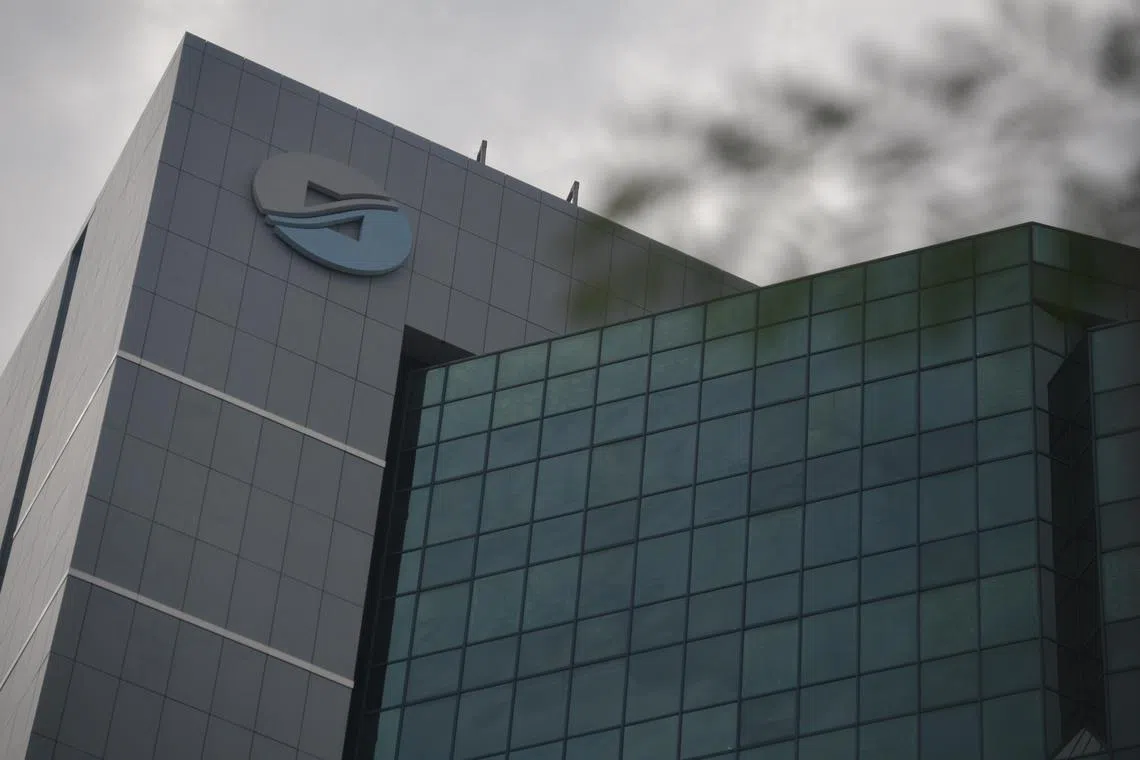Singapore tax revenue gets bumper rise of 13.1% to $68.6b amid post-pandemic economic recovery
Sign up now: Get ST's newsletters delivered to your inbox

Total tax collection amounted to $68.6 billion in April 2022 to March 2023, up 13.1 per cent from the same period from 2021 to 2022.
ST PHOTO: KUA CHEE SIONG
Follow topic:
SINGAPORE – Tax collection here rose by 13.1 per cent, continuing an upward trajectory that was interrupted only by a Covid-19 blip, to hit its highest level yet at $68.6 billion.
The $7.9 billion rise in the last financial year compared with the previous year comes amid the post-pandemic economic recovery which has lifted corporate earnings, as well as higher goods and services tax (GST) revenue.
In the financial year covering April 2020 to March 2021, when the pandemic was at its height, tax revenues fell to $49.6 billion from $53.5 billion during the same period a year ago. It recovered to a high of $60.7 billion in FY2021.
The latest amount of $68.6 billion represented 75.4 per cent of the Government’s operating revenue and 10.7 per cent of Singapore’s gross domestic product, the Inland Revenue Authority of Singapore (Iras) said on Wednesday.
The arrears rate for income tax, GST and property tax fell to 0.59 per cent at $363.1 million for the last financial year, compared with 0.64 per cent in the year before.
Tax revenue collection rose across most tax types, with corporate income tax growing by $4.9 billion to reach $23.1 billion.
It made up the largest share of total collections, at 33.7 per cent.
Meanwhile, individual income tax rose by $1.3 billion to hit $15.5 billion due to higher personal incomes.
It accounted for 22.6 per cent of total collection, of which 83 per cent came from taxpayers with annual income exceeding $150,000.
GST revenue rose by $1.5 billion to hit $14.1 billion due to higher consumption and a rebound in international arrivals, said Iras.
It made up the third-largest share of Iras’ revenue collection, at 20.5 per cent.
The GST rate was raised from 7 per cent to 8 per cent on Jan 1, 2023,
Stamp duty collection, however, fell by $800 million, or 12 per cent, due to a lower volume of transactions compared with the year before.
It accounted for 8.7 per cent of revenue collection, at $6 billion, while property tax of $5.1 billion made up 7.4 per cent.
The tax authority said it audited and investigated 9,019 taxpayers, and recovered more than $499 million in taxes and penalties.
This was an increase from the 8,665 cases it audited and investigated, and $385 million it recovered, in the previous financial year, according to its annual report then.
Mr Ng Wai Choong, commissioner of Inland Revenue and Iras chief executive, said in the latest annual report that Iras has developed new artificial intelligence applications to enhance its audit and fraud detection capabilities.
Looking ahead, the taxman will continue to scale up the use of data and technology to deliver personalised and anticipatory services, and aims to make processes more seamless for taxpayers through digital partnerships, he added.
Iras said most taxpayers no longer require assistance to file taxes, owing to efforts to encourage the use of self-help services and tools such as a new AI bot.
From the year before to the last financial year, instances where Iras assisted taxpayers fell by 3.6 per cent to 1.3 million, while self-help transactions via digital services increased by 12 per cent to 43 million.
Iras enhanced its mobile-friendly e-Stamping Portal in October, resulting in less form filling for taxpayers and bulk stamping for collective sales.
It also launched its Virtual Intelligent Chat Assistant bot in February, allowing taxpayers to get instant answers when they use the bot to check for outstanding taxes, payment status and filing status of tax clearance.
The bot can also handle requests such as those on payments, the reactivation of Giro plans, and waivers of late filing fees and payment penalties, said Iras.
“With the evolution of generative AI chatbots such as ChatGPT, Iras is collaborating with GovTech (Government Technology Agency) to progressively upgrade the bot to a new version that can better understand users’ intent and more specific queries,” it added.
Mr Ng said the taxman will also step up international engagement efforts and work with the Ministry of Finance to strengthen Singapore’s tax regime.
“As an organisation, we will continue to level up the skills and competencies of our workforce and tap new opportunities,” he said.
Iras also disbursed a total of $4.6 billion in grants under various schemes to support local hiring and wage growth for Singaporeans.
For example, $2.7 billion was disbursed under the Jobs Growth Incentive scheme


